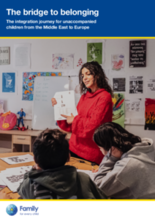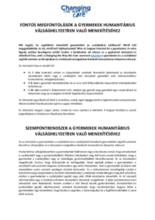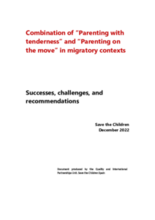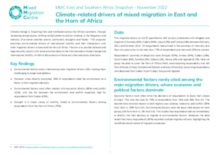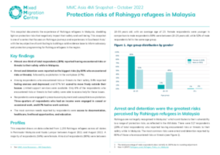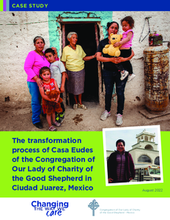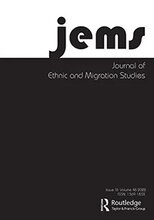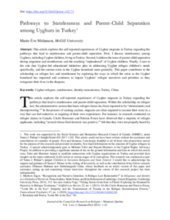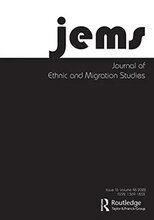Displaying 41 - 50 of 809
This report examines what happens after unaccompanied children have arrived at their European destinations and is based on interviews with key informants, a literature review, and research in three sites (Lebanon, Greece and Germany). What does it mean to integrate into a new society when you are a child on your own? How do they face the challenges of building an identity without their families, process the violence and dangers of their journeys, and face a new situation that may not be as welcoming or straightforward as they had expected?
Ezt az útmutatót azoknak a szolgáltatóknak állítottuk össze, akik gyermekekkel, családokkal és elszakított gyermekekkel foglalkoznak, válaszul a jelenlegi ukrajnai és környező országok humanitárius helyzetére.
The objective of this Save the Children Spain document is to gather the key findings of the combination of “Parenting with tenderness” and “Parenting on the move” in migratory contexts. It also seeks to improve the quality of its implementation in the context of Mexican migration, based on good practices and lessons learned.
This snapshot produced by Mixed Migration Center examines environmental drivers of international mobility and their interactions with other migration drivers in East and the Horn of Africa. The aim is to provide national and regional policy actors with some empirical data on the links between climate change and international mobility, to inform discussions on future activities and policy directions.
This snapshot documents the experience of Rohingya refugees in Malaysia, shedding light on protection risks that negatively impact their safety and well-being. This snapshot is one of a series that focuses on Rohingya journeys and experiences in Southeast Asia, with the key objective of contributing to building a solid evidence base to inform advocacy and protection programming for Rohingya refugees in the region.
The "Children of War" platform was created on behalf of the Office of the President of Ukraine as a tool for finding children, rescuing them and liberating them from places of forced displacement or deportation.
This case study highlights the transition of the Sisters of Our Lady of Charity of the Good Shepherd in Ciudad Juarez. It is an honest look at the emotional, logistical, and practical elements involved in transitioning from a residential care model which existed for more than 100 years to a provider of community-based and family-centered services.
This paper aims to analyse how State policies, on the book and in practice, shape family reunification. It focuses on child migration under constraint in France, by analysing the timing and factors of (non-)reunification among foreign immigrants, whose legal conditions for family reunification are much more restrictive than for those who obtained the French citizenship.
This paper contributes to the scholarship on refugee law and resettlement by exploring the ways in which the crisis in the Uyghur homeland in Turkey has impacted and continues to impact Uyghurs’ refugee narratives and priorities as they reorganize their lives in the diaspora.
This paper aims to analyse how State policies, on the book and in practice, shape family reunification. It focuses on child migration under constraint in France, by analysing the timing and factors of (non-)reunification among foreign immigrants, whose legal conditions for family reunification are much more restrictive than for those who obtained the French citizenship.

